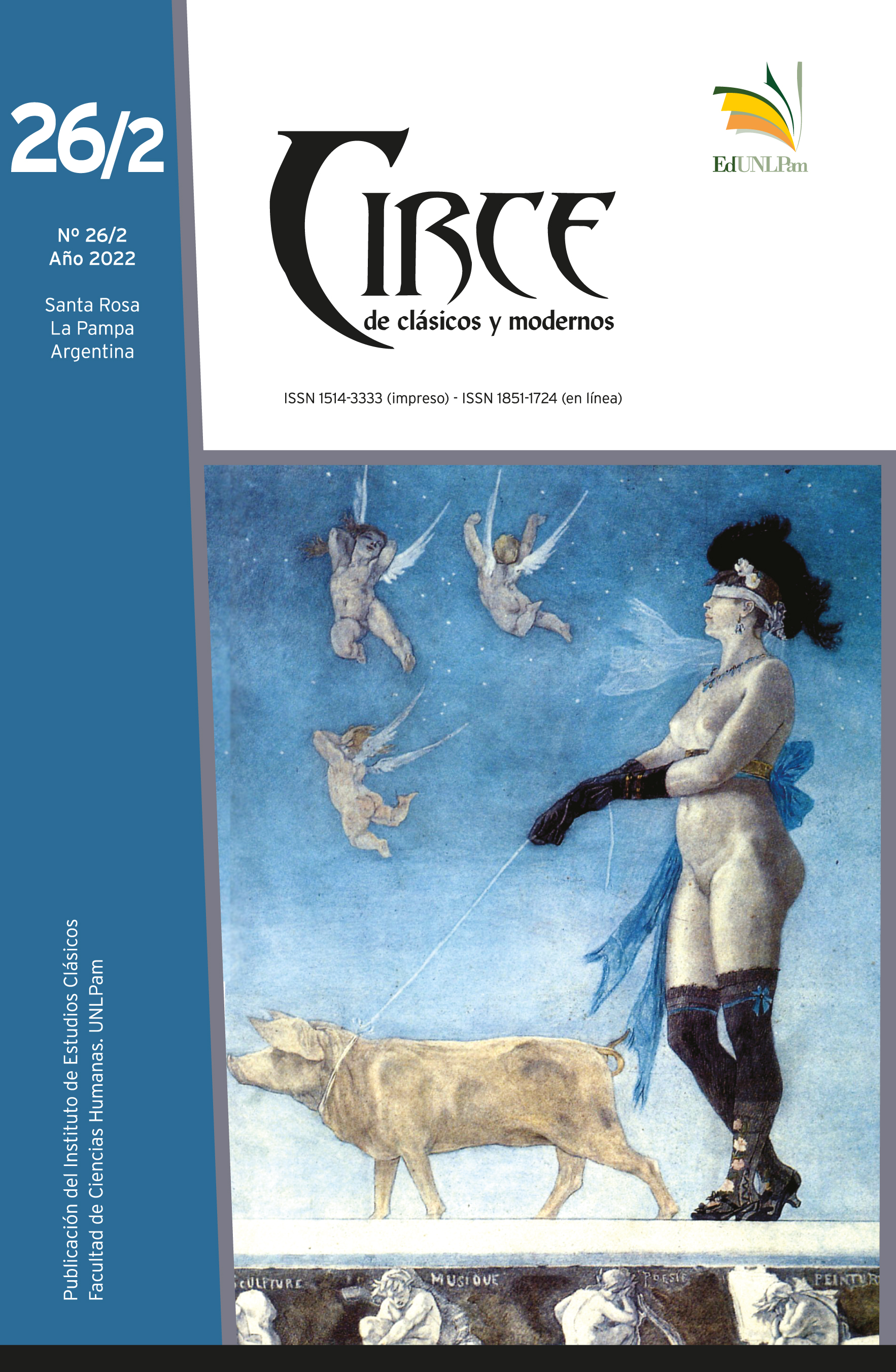Homero, Aristóteles y la naturaleza de la compasión
Palabras clave:
Homero, Aristóteles, Platón, emoción, piedad, dolor, Judith ButlerResumen
Este artículo explora aspectos de lo que llamaré piedad o compasión en Homero (especialmente en Ilíada 24) y Aristóteles (sobre todo en la Retórica), pero sin depender de una precisa terminología. Los fenómenos que abarcan términos como “compasión”, “simpatía”, “empatía” y “lástima” (y sus análogos, cuando existen, en otras lenguas) constituyen una familia en la que las semejanzas son a menudo bastante estrechas en la práctica (aunque determinados miembros del grupo entren y salgan de moda y adquieran una serie de connotaciones diferentes en distintas épocas y contextos). Al concentrarme en la teoría y la práctica de la literatura, no ofrezco un relato sintético de la piedad griega antigua, sino que me centro principalmente en dos autores, Homero y Aristóteles, y procedo principalmente mediante una confrontación entre la representación de la piedad en el libro final de la Ilíada y la teorización de esa emoción en la Retórica y la Poética de Aristóteles. Comienzo con Homero, pero inmediatamente pongo en relación la narración homérica con el relato de la piedad de Aristóteles en la Retórica. Esto llevará a algunas reflexiones sobre la naturaleza de la piedad y la compasión en Homero en general, antes de volver al contraste entre Homero y Aristóteles (con énfasis en la Poética), un contraste que en cierto modo se ve subrayado por ciertas diferencias entre Aristóteles y Platón sobre los efectos emocionales de la poesía épica y trágica. Un aspecto de especial atención será la vinculación que hace Aristóteles de la piedad con el tipo de cosas que uno temería si le ocurrieran a uno mismo, por contraste con la conexión, en Homero y Platón, entre la piedad por los demás y la experiencia del dolor, tanto propio como ajeno.
Descargas
Publicado
Número
Sección
Licencia
Los autores que tengan publicaciones con esta revista, aceptan los términos siguientes referidos a los derechos de autor/a:
1. Los autores/as conservarán sus derechos de autor y garantizarán a la revista el derecho de primera publicación de su obra, el cuál estará simultáneamente sujeto a la Licencia de reconocimiento de Licencia Creative Commons Atribución-NoComercial-CompartirIgual 4.0 Internacional (http://creativecommons.org/licenses/by-nc-sa/4.0/). que permite a terceros compartir la obra siempre que se indique su autor y su primera publicación esta revista. El autor es el titular del copyright.
2. Los autores/as podrán adoptar otros acuerdos de licencia no exclusiva de distribución de la versión de la obra publicada (postprint) siempre que se indique la publicación inicial en esta revista. La cesión de derechos no exclusivos implica también la autorización por parte de los autores para que el trabajo sea depositado en el repositorio institucional y difundido a través de las bases de datos que el editor considere adecuadas para su indización, con miras a incrementar la visibilidad de la publicación y de sus autores.
3. Se permite y recomienda a los autores/as difundir su obra a través de Internet antes y durante el proceso de envío, lo cual puede producir intercambios interesantes y aumentar las citas de la obra publicada.







.jpg)









2.png)



